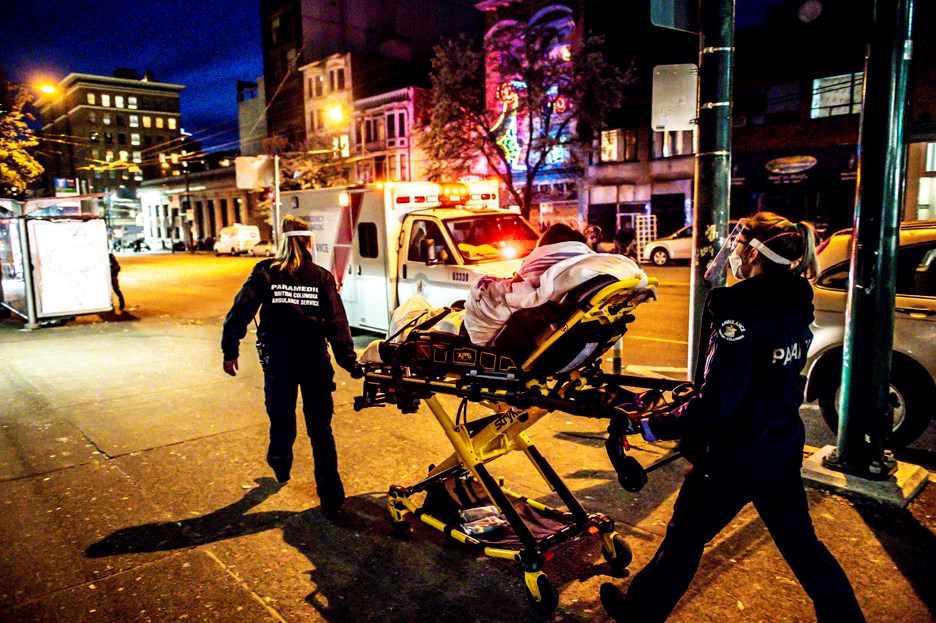May 23 to 29 is Paramedic Services Week across Canada.
Each year in B.C., there are approximately half-a-million calls to 911 that require ambulance dispatch.
For the past two years, Ambulance Paramedics of BC (APBC) said its 4,500-plus members have felt overwhelming love and support from the public due to the global pandemic and worsening opioid crisis with more than 90 overdose calls per day.
“Our ambulance paramedics and emergency dispatchers appreciate the public’s gratitude at a time when dual health emergencies have led our members to physical and psychological exhaustion,” said Troy Clifford, president of Ambulance Paramedics of BC.
APBC said this year has seen some of the worst service shortfalls in recent history due to medical leaves, recruitment and retention issues, and a flawed on-call service model.
This year’s theme of Paramedic Services Week is Paramedic as Educator – Citizen Ready. This week, APBC will use its social media channels to share more about what ambulance paramedics and medical dispatchers do.
“Ambulance paramedics have the most advanced life-saving skills and training among frontline responders,” said Clifford. “Our training takes months and years - not hours.”
From the moment someone calls 9-1-1 dispatch and asks for an ambulance, they are connected to an emergency dispatcher who is trained to begin what-can-be lifesaving medical instruction over the phone as a paramedic team heads their way by ground or air.
Six Levels of Care
There are six levels of paramedics requiring different levels of training:
- Emergency Medical Responder: Licensed to administer basic life-saving emergency medical care.
- Primary Care Paramedic: Licensed to administer more advanced patient care than EMRs, most BC paramedics are PCPs, and they handle the majority of 911 calls.
- Community Paramedic: Licensed at the PCP-IV level or higher to provide non-emergency and scheduled care to patients as part of an integrated healthcare team.
- Advanced Care Paramedic: Specialize in advanced care of medical and trauma patients with a focus on advanced cardiac resuscitation.
- Critical Care Paramedic: Highest level of specialized care with a focus on acute interfacility transport, air medical response, and infant, child and perinatal care.
- Paramedic Specialist: Advanced Care and Critical Care paramedics who provide on-scene technical support for high-risk situations, mass and complex patient events as well as telephone support to paramedics and patients.
“From our medical dispatchers, to ground paramedics and air ambulance teams, to our community paramedics, our members work hard every day to ensure you get timely, quality and advanced medical aid and transport to hospital,” said Clifford.



